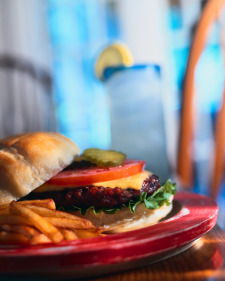You probably already know that you can't trust what you read about weight loss, or dieting, and that has never been more true than it is today with the internet where anybody can write anything (and they do, every day)!
Combating the misinformation in this area could be a fulltime job! Here are two examples from this morning:
Misleading Article #1 - The best fat-burning breakfasts
This article misleads in two ways:
 a. Does "eating breakfast really crank up your metabolism?" Any time you eat, the process of digesting what you ate, creates what is called the "thermic effect of food." The thermic effect of food amounts to an average of 10% of ingested calories on a balanced diet, or about 13% of ingested calories on a high-protein diet. There is however, no increase in your underlying metabolic rate, as the "eat breakfast and boost your metabolism" notion promotes. Eating breakfast has long been associated with lower BMIs (body mass index, a weight to height measure) however, researchers suspect that that's because people who eat breakfast have a generally more healthy lifestyle than non breakfast eaters. For instance, "night eaters" tend to eat one (huge) meal a day, and they don't eat breakfast.
a. Does "eating breakfast really crank up your metabolism?" Any time you eat, the process of digesting what you ate, creates what is called the "thermic effect of food." The thermic effect of food amounts to an average of 10% of ingested calories on a balanced diet, or about 13% of ingested calories on a high-protein diet. There is however, no increase in your underlying metabolic rate, as the "eat breakfast and boost your metabolism" notion promotes. Eating breakfast has long been associated with lower BMIs (body mass index, a weight to height measure) however, researchers suspect that that's because people who eat breakfast have a generally more healthy lifestyle than non breakfast eaters. For instance, "night eaters" tend to eat one (huge) meal a day, and they don't eat breakfast.
Click to read more ...
 Sunday, March 27, 2011 at 7:44PM
Sunday, March 27, 2011 at 7:44PM  In my last post I explained that the popularity of glycemic index among dieters is based on myths about the affect of insulin on hunger, fat storage and weight gain. Glycemic index does have value however, just not what the fad-diet books claimed.
In my last post I explained that the popularity of glycemic index among dieters is based on myths about the affect of insulin on hunger, fat storage and weight gain. Glycemic index does have value however, just not what the fad-diet books claimed.




